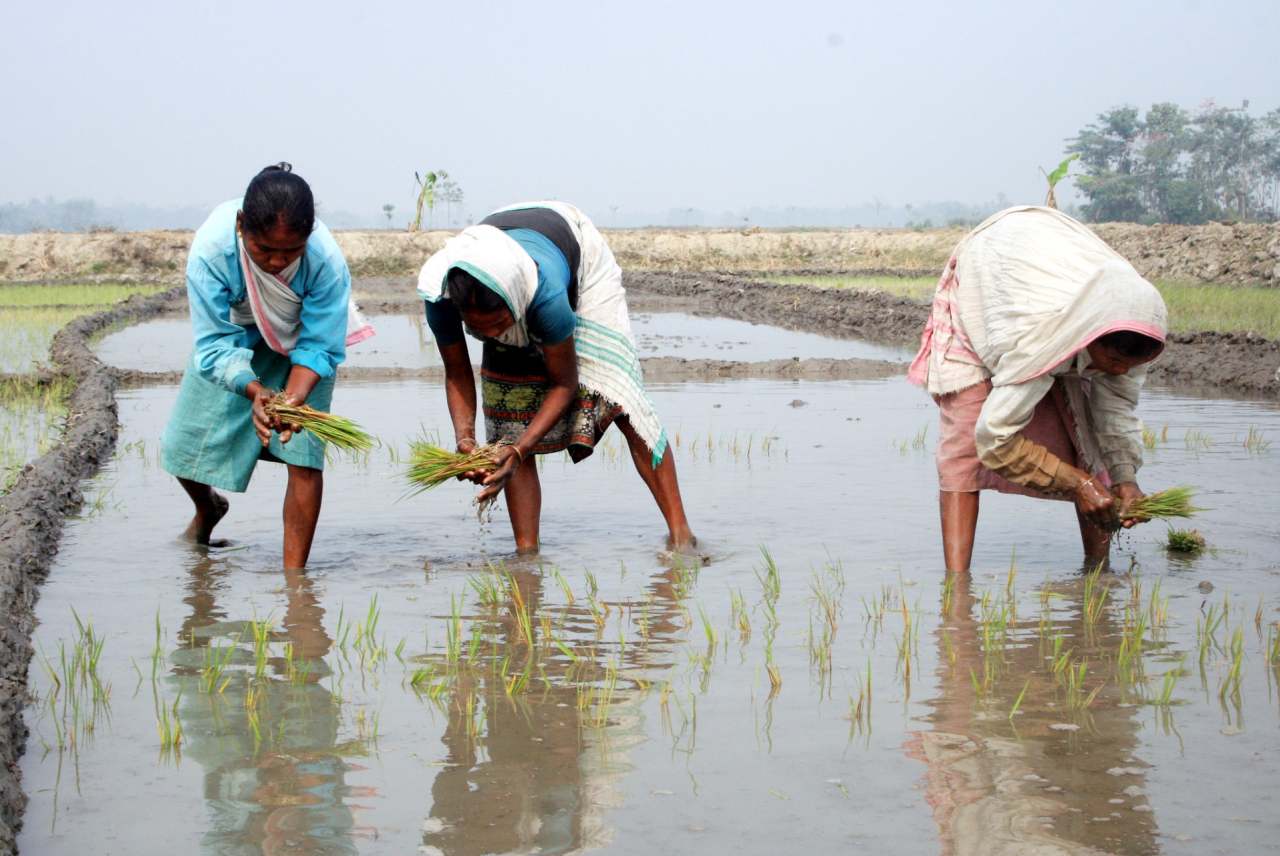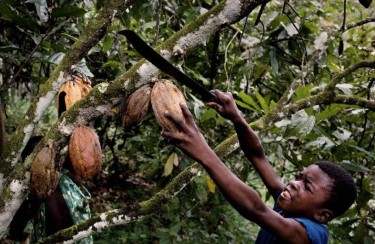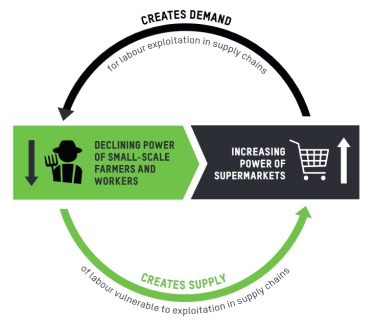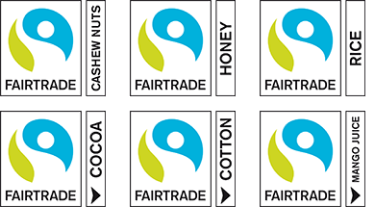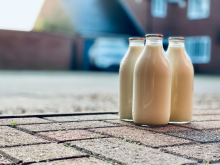A quarter of the world’s population works in agriculture. It is the world’s largest industry and worth $12 trillion every year.
Yet, the way that we currently produce, trade and consume food has left many of the industry’s workers without even the most basic rights.
What are workers' rights issues in the food industry?
The food industry has a litany of workers’ rights abuses. These are some of the key issues that must be tackled in our food system.
1. Poverty wages
There are 500 million smallholder farmer households globally. They produce around 30% of the world’s total food. Many smallholder farmers are amongst the poorest people in the world. Often smallholders are paid appallingly low prices for their produce.
For example, around 80% of the world’s coffee comes from smallholder farms, almost all in the Global South. However, in many places the legacies of colonialism affect the ability for smallholder farmers to trade their crop fairly. According to Chris Ouloch from Fairtrade Africa, “After colonialism ended and coffee-growing land was returned to native producers, many of them were only left with small parcels of land.”
Today this means they often have to sell their coffee through established multinationals. Foreign exporters will buy green coffee at a low price from the growers, and roast it abroad to sell at many times the price. This means that farmers get a fraction of the product’s final value – only a tiny portion compared to the multinational’s profits.
This is true for many food items e.g. cocoa beans into chocolate. The profit comes from additional processing which is nearly always carried out elsewhere. In contrast, some of our best buy chocolate brands make the chocolate at source.
Where food is produced on a larger scale, low incomes are often passed on to farm workers. A worker in the tea industry receives on average just 38% of the living wage. Even in the UK, the agricultural industry has by far the largest proportion of low income insecure work of any sector.
As a result, many of those producing our food face ‘in-work poverty’. In 2018, an Oxfam report on conditions for banana workers in Ecuador – the biggest exporter of the fruit – found that most workers were living “a hand-to-mouth existence.” In 2019, Oxfam found that two-thirds of banana workers said they did not earn enough to cover basic needs.
“Money is extremely tight. We must cut down on food to be able to pay our children’s school fees.” Yensy, wife of a worker at the pineapple plantation Finca Once, Lidl supplier quoted in a 2018 Oxfam report.
Even where the legal minimum wage is respected on plantations, in packing factories or in other parts of the food supply chain, it may not be enough to provide a sufficient income.
